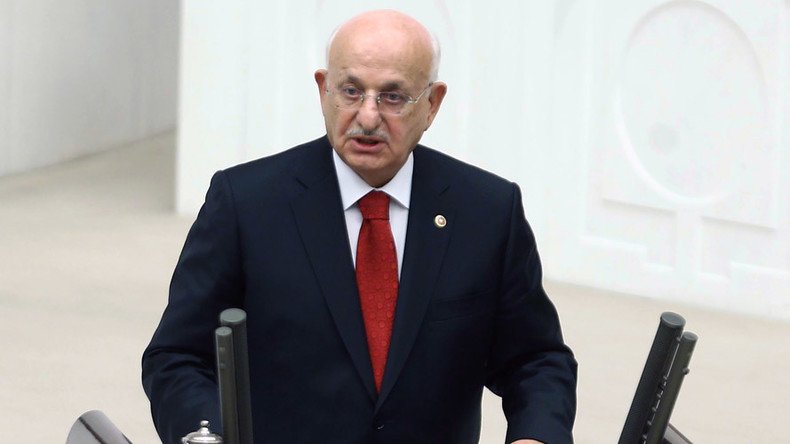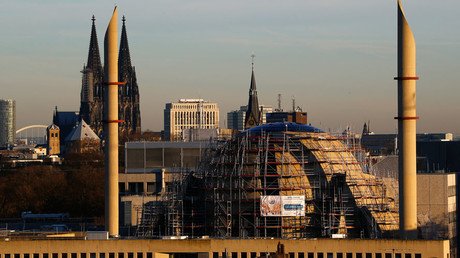‘We are a Muslim country’: Turkey’s parliament speaker advocates religious constitution

Turkey, an overwhelmingly Muslim country, should have a constitution based on Islam rather than a secular constitution, the speaker of the Turkish parliament has said in a speech. Secularism has been the cornerstone of modern Turkey for decades.
The founder of modern Turkey, Mustafa Kemal Ataturk, reshaped the collapsing Islamic Ottoman Empire in the early 20th century. He founded the state on Turkish nationalism and Western-style secularism, or separation of the state and religion.
However, the currently ruling Justice and Development Party (AKP) apparently wants to get rid of one of the pillars of Kemalism ideology.
READ MORE: The end of "Secular Turkey" or Ottomans re-emergent?
“We are a Muslim country and so we should have a religious constitution,” said Turkish Parliament Speaker Ismail Kahraman on Monday, lamenting that the name Allah is not mentioned even once in the country’s founding charter.
“Secularism would not have a place in a new constitution,” he said.
Kahraman was addressing an Islamic scholars and writers conference in Istanbul. As the head of the parliament, it’s Kahraman’s job to pen a new draft constitution for Turkey.
AKP has its roots in political Islam and has been pushing for constitutional amendments during its 13-year rule in Turkey. It wants to empower the office of president from a purely ceremonial function to a fully-fledged head of state. Such a reform would benefit incumbent President Tayyip Erdogan, who traded the prime minister’s seat for that of the president’s in 2014.
The reform was a major issue of last year’s general election, with AKP insisting that only strong presidential power can hold Turkey together against security threats such as the Kurdish insurgency. Critics say it would undermine Turkey’s civil rights and give dictatorial powers to Erdogan. Some say he wants to be a sultan, harking back to the Ottoman days.
Turkish secularism did not become absolute even after Ataturk’s reforms. The country has a special government body tasked with promoting Islam, the Diyanet, and funds religious teaching. But AKP champions of political Islam such as the 75-year-old Kahraman want a far greater role for their religion.
The Turkish opposition criticized the speaker’s words. Kemal Kilicdaroglu, the head of the secularist Republican People's Party (CHP), said that political Islam is the reason why the Middle East is in the grip of sectarian violence.
“Secularism is the primary principle of social peace ... Secularism is there to ensure that everyone has religious freedom, Ismail Kahraman!" Kilicdaroglu tweeted.
The speaker’s position was also opposed by the head of the parliament’s constitutional commission and fellow AKP member Mustafa Sentop, who said there were no plans to remove the concept of secularism from the future draft.
The majority of Turkey’s 78-million population is Sunni Muslim, according to Reuters. About a fifth is estimated to be Alevi, which draws from Shia, Sufi and Anatolian folk traditions. There are about 100,000 Christians and 17,000 Jews living in the country.













